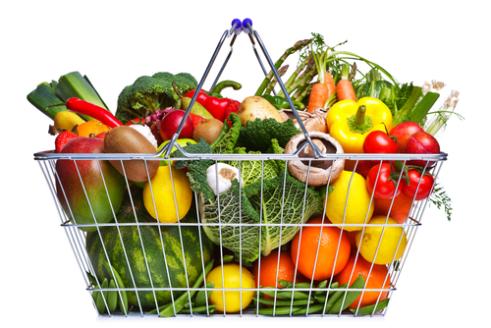Top 5 Nutrition Myths

Nutrition myths and misinformation are everywhere…magazines, the internet and even New York Times best-selling books. With that in mind, we decided to debunk five of the most common nutrition myths. Don’t be surprised if you learn a thing or two!
Myth 1: Fad diets don’t work
In fact, most research shows fad diets do work, and some of them quite well. The problem is they are short-term solutions to a long-term problem. They also tend to associate weight loss success with some gimmick when, in reality, decreased calorie intake is usually the “real” reason for shedding the pounds.
Myth 2: You need to drink 8-8oz. glasses of fluids
You’ve probably heard this more than once or twice, right? But why wouldn’t fluid intake be individualized like everything else? It doesn’t make sense to have a 150 pound person drink as much as a 250 pound person. Your best bet is to base your needs on body weight and drink approximately half your weight (lbs) in ounces, and then multiply that value by .80 [Example: (150 pounds/2) x .80 = 60 ounces]. Remember, most people drink 80% of their fluids and consume 20% via food intake.
Myth 3: Diet foods automatically help you lose weight
They can certainly have that effect, but the 1980s and 90s revealed a different trend. When low-fat diets were all the rage, people consumed fat-free and low-fat foods by the pound, and the nation’s waistline continued to bulge. Fat intake dropped and carbohydrate intake sky-rocketed, with an increase in total calorie intake for many individuals. Bottom line…even supposed “health” foods could make weight loss difficult if you simply eat too much – moderation is key in weight management.
Myth 4: Don’t diet to lose weight, just exercise
The idea that one simply needs to exercise to lose weight seems logical enough. After all, the more calories you burn, the more weight you’ll lose, right? Well, it’s actually not quite that simple. Unfortunately, people seem to forget how easy it is to replace the calories that you expend during exercise with food. Exercise is clearly beneficial, however, and actually plays a much more prominent role in maintaining your new weight. Focus on balancing your calorie intake with the calories you burn in a workout.
Myth 5: You shouldn’t eat before your morning workout
This actually depends on what you’re looking to get out of your training session. If you’re going for a leisurely walk, you obviously don’t need to eat to fuel that activity. On the other hand, if you’re going on a training run in preparation for a race, starting out with nothing in the tank will make your run incredibly difficult. In this instance, having a small snack-sized breakfast will provide adequate energy for peak performance. The duration and intensity of the workout, along with your overall fitness and body composition goals, are all things to consider when deciding to eat or not.
Are there any other myths you’ve debunked yourself? Share in the comments below!
Brian Zehetner, MS,RD,CSSD,CSCS, wrote this post for Together Counts™ on behalf of Anytime Fitness. Known as the “science guy,” Brian serves as the Director of Anytime Health for the Anytime Fitness Franchise System. He is a registered dietitian, certified strength and conditioning specialist, and board certified sports dietitian with over 15 years of experience in the nutrition and fitness industries.

